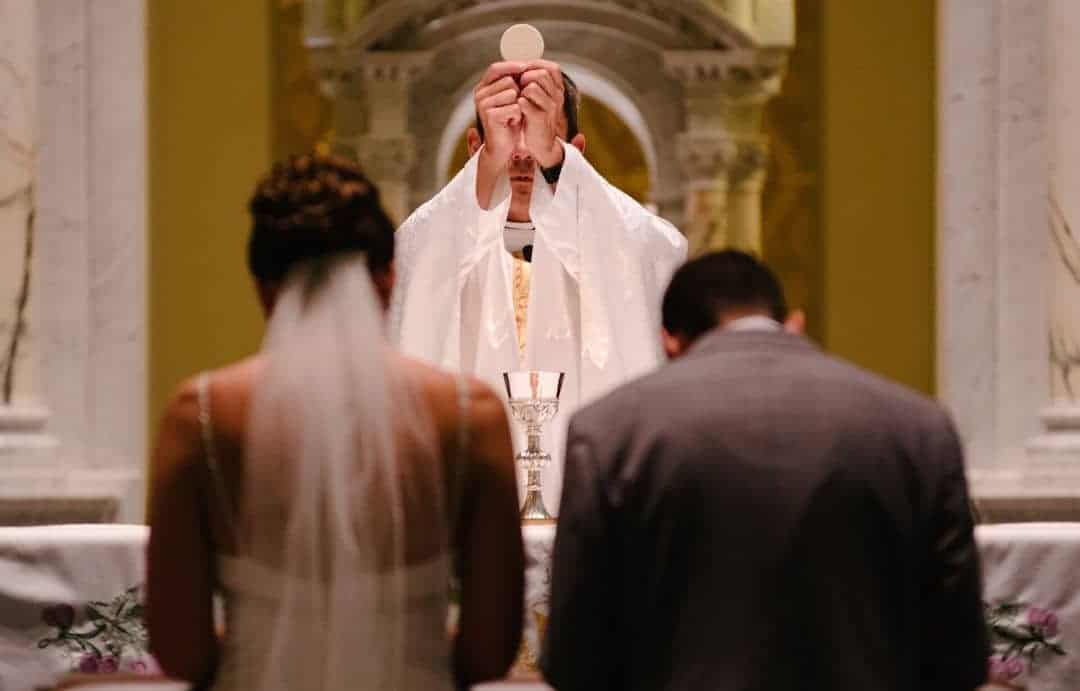What is Marriage?
by CAPP-USA
The marriage debate feels endless. But let’s step back and ask “why is marriage important”, and “who defines it“? These questions and their answers are vital.
Many put forward fluid definitions of marriage, others dismiss the institution entirely, while others insist on ‘traditional’ definitions.

The correct definition and purpose of marriage is vital to solving our cultural crisis
What is the Truth?
What is Marriage?
Marriage is defined by God and His laws. Therefore, this sacred institution cannot be redefined by anyone. Period.
“Marriage” is an “intimate partnership of…life and love…established by the Creator and qualified by His laws, and is rooted in the conjugal covenant of irrevocable personal consent.” (Gaudium et Spes, 48)
“[M]arriage and the family are rooted in the inmost nucleus of the truth about man and his destiny.” (Pope Benedict XVI)
Marriage is Between a Man and a Woman
Marriage cannot be redefined or expanded to include same-sex unions, “throuples”, or any other thing it is not. Marriage is “that intimate union of life in complementarity between a man and a woman which is constituted in the freely contracted and publicly expressed indissoluble bond of matrimony and is open to the transmission of life”. (Preamble, B., Charter of the Rights of the Family)
And “the unity of marriage will radiate from the equal personal dignity of wife and husband, a dignity acknowledged by mutual and total love.” (Gaudium et Spes, 49)
So governments must take note: “[T]he State must acknowledge, respect and support this venerable institution as the stable union between a man and a woman who willingly embrace a life-long commitment of love and fidelity”. (Pope Benedict XVI)
Marriage is Important
Marriage is critical to culture’s health. “[H]uman society at large springs from marriage”. (Pope Leo XIII, 17)
That is why the Church makes such a “big deal” of family. When others exclaim, “Just live and let live”, we answer “How can we?” “[M]arriage and the family constitute one of the most precious of human values”. (Pope St. John Paul II, 1)
And “The family is based upon a marriage”. (Pope St. John XXIII, 193) which “transcends the feelings and momentary needs of the couple…it is not born ‘of loving sentiment, ephemeral by definition, but from the depth of the obligation assumed by the spouses who accept to enter a total communion of life’.” (Pope Francis, 66)
“Whoever wants to build the civic and social edifice on strong and stable foundations must base it on a conception of marriage and the family”. (Pope Pius XII)
Marriage is indispensable to society. “The well-being of the individual person and…society is intimately linked with the healthy condition of that community produced by marriage and family.” (Gaudium et Spes, 47)
The Future of Marriage
What can Catholics do to promote the true definition and purpose of marriage? “Christians…should actively promote the values of marriage and the family, both by the examples of their own lives and by cooperation with other men of good will.” (Gaudium et Spes, 52)
It is “a social and even economic necessity…to hold up to future generations the beauty of marriage and the family, and the fact that these institutions correspond to the deepest needs and dignity of the person.” (Pope Benedict XVI, 44)
The future depends on good marriages.





